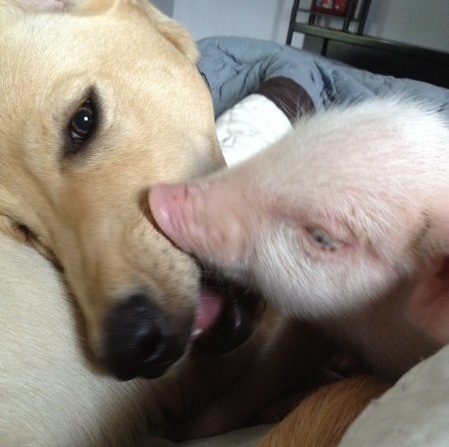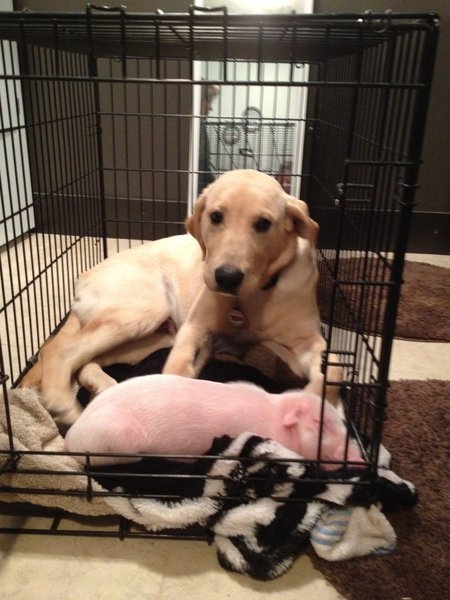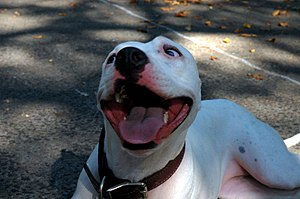Labor Day Pets
In the US Labor Day is a yearly national tribute to the contributions workers have made to the strength, prosperity, and well-being of their country. At VetLocator Daily Paws we’d like to take a moment to give tribute to our working pets and the contribution they make, not only to our own families, but to the increased well being of mankind and the planet.
There are so many ways our pets labor for our benefit and when you think of working pets, most people think of service animals. But any home that has a pet knows that our pets have their role in our home that they work to fill. So here are some different working roles, just a few we celebrate this Labor Day:
Dogs
The best known service animals are Service Dogs. A service dog is a type of assistance dog specifically trained to help people who have disabilities including visual difficulties, hearing impairments, mental illness, seizures, diabetes, autism, and more. But dogs are being used for other uses too. Dogs, it turns out, are also quite capable conservationists. A group called Working Dogs for Conservation, use canines to sniff out animal and plant populations so researchers can monitor and preserve them — an eco-variation on drug- and bomb-sniffing dogs. Because of their acute sense of smell and ability to traverse rugged terrain, dogs not only effectively nose for difficult-to-detect animal scat (poop), but they also help locate rare live animals and plants. Canine conservation projects include tracking jaguars in the Amazon rain forest and Mexico and monitoring Asiatic black bears classified as vulnerable in China. In the future they may even be used to detect indoor air contaminants.
Cats
The term ‘herding cats‘ means something difficult, hard to achieve, and that is what most people think about training cats to perform a working function. But cats are hard workers, it’s just that they work on their own terms. The best way to get a cat to work with you is to expect your cat to do what comes naturally, namely keep areas free of rodents and unwanted critters while providing entertainment and opportunities to give them strokes. Businesses have ‘Greeting Cats‘ that greet visitors and provide a friendly atmosphere for the business and we’ve stayed at Inns that provide a cat with the room we stayed in. We loved it!
But did you know the hunting skill most cats inherently have is being put to use to save feral cat colonies throughout the US? Feral cats are used to living in the wild on their own and don’t ever really adapt to being a housecat. Living in the wild means they have to hunt to survive so they become excellent ratters and mousers. There are now programs to help feral cat colonies use that skill in exchange for regular feeding and vet care, and that is by having them work in businesses and farms to keep their areas free of rats and mice. One of these is called The Working Cats Program and it is a simple and green concept: relocate feral cats to suitable areas where they can work with humans who in return provide them with a place to live. It’s a different kind of forever home where the cats can do what’s natural – control rat and mice populations. Cats living in feral colonies that have been vaccinated and spayed/neutered are placed with businesses that need help controlling vermin. With cats roaming around a property and leaving their scent everywhere, rats leave the area on their own. Felines have been placed successfully with construction companies, in barns, flower shops, police stations and other businesses looking for inexpensive and effective rodent control. Even the government uses a cat, Misty, to keep the grounds free of pests and to give workers an opportunity to pet her on their breaks.
Rats
Undetonated land mines are a serious form of pollution that leaves large geographical areas virtually uninhabitable and injures or kills thousands each year. That’s why locating and removing them from former war zones is so important. Trouble is that few human volunteers are willing to risk their lives to uncover them. Enter the rat brigade, specifically, African giant pouched rats. These fast-learning rodents, dubbed HeroRATs (which incidentally are too light to set off land mines), are being trained at the humanitarian organization APOPO to sniff out buried explosives. (APOPO is an acronym from Dutch for Anti-Personnel Landmines Detection Product Development.) The group is also training rats to locate people buried under rubble from natural disasters, as well as detect leaking gas lines and even the presence of tuberculosis in human.
Sea Lions and Seals
Scientists at the University of California-Santa Cruz have teamed up with some special “researchers” to help them document ocean temperatures, salinity and other undersea conditions. With their unique diving abilities that allow them to swim where few humans have gone before, ocean mammals such as sea lions (pictured) are being outfitted with sensors that stick to their fur and later fall off when they molt. Information is transmitted to a satellite when the animals surface to breathe and is used to create computer models that will better predict ocean circulation patterns. Elsewhere, researchers are using sensor-wearing elephant seals to dive under the Antarctic ice in search of climate change evidence. Elephant seals are even helping track the size and health of U.S. salmon populations.




